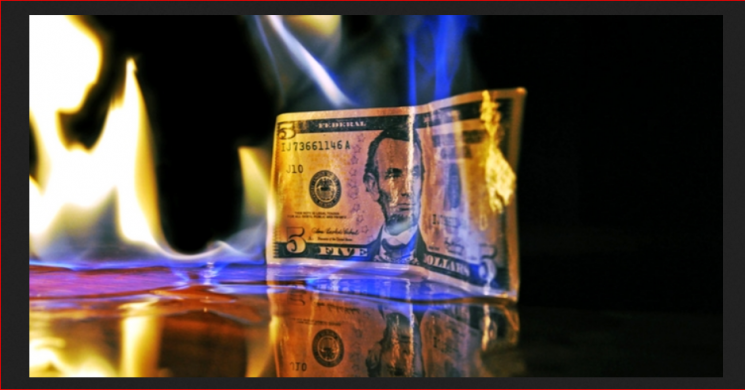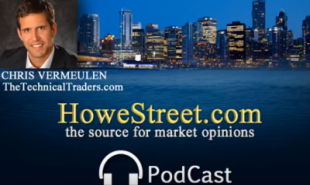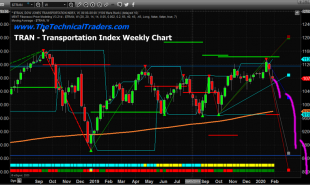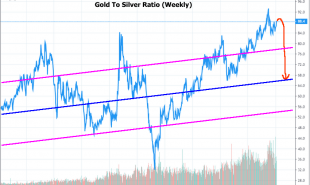
Introduction by Vince Lanci
Originally posted on marketslant.com
Here is yet more proof of what happens when slow, methodical planning, manufactured consent, and corporate influence combine their forces. The result is an unholy union between academic ideologists, political puppets, and corporate greed manifested in what can only be described as a juggernaut; A slow, relentlessly moving object that will crush anything in its path. Note juggernauts are also prone to crushing their devotees as well.
Per Wikipedia
A juggernaut in current English usage, is a literal or metaphorical force regarded as mercilessly destructive and unstoppable. This usage originated in the mid-nineteenth century[2] as an allegorical reference to the Hindu temple cars of Jagannath Temple in Puri, which apocryphally were reputed to crush devotees under their wheels.
When you have political, capitalistic, and ideological forces aligned; you get economic, political, and technological forces almost religiously agreeing on a course of action. In this case, Multiculturalist Ideology, Government Shills, and New Tech can now make their play on creating an even more captive consumer / sheeple.
Visa's Pitch to India
And among the people championing the convenience of a cashless society are those who use iphones to buy Starbucks coffee. These devotees who will sacrifice freedom for convenience will not be spared. They will be crushed under the juggernaut when alternate choices of transacted commerce are eliminated.
Kind of like the middle class thinking Trump was going to help them. Or the bitter left that thought Hillary was actually liberal. There are only degrees of authoritarianism now. And those in power are the elitists who state they know what is best for you. It also happens to be what is best for them. And cash - or more correctly control of how cash is spent - is an obstacle to that
There is nowhere to hide. The cashless society is coming, and with it, your freedom to spend where and when you see fit. Your ability to get fair prices from open trade borders will be closed. And when you convert your paper to Gold, that will be attacked next.
And those people using Bitcoin to transfer wealth out of countries to retain their economic freedom we say this; What are you going to transfer your wealth into? Are you going to leave it in Bitcoins? Then enjoy 100% volatility.
Risk cannot be created or destroyed, it can only be exchanged for different risk. The wall is being built alright. It is being built around your economic freedom. Then the cries of BUY AMERICAN will sound out, as you will not be able to buy anywhere else. And American corporations will own your spending habits. Do you think supermarkets want to make less money when they ask for your "Club Card"?
You should be very scared when a bank spokesperson feels confident enough to actually say what he did. That means he thinks its a done deal. That headline is an actual quote.
- VBL
Banks Are Scheming to Dominate a Future Cashless Society
Written by Shaun Bradley for theantimedia.org
Visa recently announced its new Cashless Challenge program, which offers $10,000 to restaurants willing to transition into accepting only digital payments. As the largest credit card processor in the U.S., it’s no surprise Visa is spearheading this campaign. Under the guise of increasing transparency and efficiency, they’ve partnered with governments around the world to help convert financial systems into cashless models, but their real incentive is the billions of dollars in extra transaction fees it would generate.
“We are declaring war on cash,” Visa spokesman Andy Gerlt proudly proclaimed after the program was announced.
The food-based small businesses Visa is targeting are among those that benefit most from accepting cash from customers. When transactions are for amounts less than $10, the fees charged cut significantly into profits. Only 28% of food trucks currently accept credit card payments because of the huge losses they incur from them. The bribe from Visa may seem appealing up front but will be mostly paid back to them over the next few years in fees alone.
Liz Garner, Vice President of the Merchant Advisory Group, which represents over 100 of the largest businesses in the U.S., explained some of the hurdles faced when dealing with card networks:
“For many businesses – both large and small – the cost of accepting plastic cards and other forms of electronic payments is one of their highest operating costs. Most business owners have no qualms about paying reasonable fees for business services, and they do so every day for items such as cleaning services, security systems, Wi-Fi, and other basic needs. However, they have the ability to negotiate for those services in a fair and transparent marketplace, which they do not with the two major credit and debit card networks….Credit card and debit card fees are dictated directly by Visa and MasterCard and are imposed on the majority of merchants in a take-it-or-leave-it fashion. Most businesses feel that failing to accept these major card brands is not a competitive option so they continue accepting electronic payments even though the costs are squeezing their business, and the inflexible acceptance rules fly in the face of free market enterprise,”
This ongoing push for a cashless society in Europe, Asia, and the Americas is about much more than just phasing out paper money — it’s about central planners solidifying control over the public’s wealth. This ongoing merger of corporate and government interests is the definition of crony capitalism. Regardless of the blatant collusion, the choices individuals make will still ultimately decide the direction for the future. Buying material goods on credit has become a lifestyle for millions, but the long-term costs of those decisions must be understood if there’s any chance for progress.
Americans have made a huge mistake by running up a staggering $1 trillion dollars in credit card debt with an average interest rate of over 16%. Thanks to the Federal Reserve system, companies like Mastercard, Discover, and American Express can issue bonds paying extremely low-interest rates to the investors while simultaneously lending that money out to credit card holders at sky high rates. Companies will always take advantage of opportunities to increase profits, but the people’s willingness to keep borrowing from them is at the core of the problem.
Access to cheap capital has been extended to the largest corporations for over a decade, but when it comes to small businesses or individuals there is a completely different set of standards. The pressure to consistently increase revenues and stock prices has led to an unnatural parasitic relationship between these companies and their customers. Cash is one of the last options that allows people a way to avoid dealing with this kind of shakedown.
More than 30% of all payments in the U.S. are still conducted in cash, but financial intermediaries that charge processing fees are joining with the State and central banks to ensure the public has no room to innovate. Credit and debit cards have been the most convenient way to make purchases for over a decade, but emerging competition is slowly making them irrelevant.
Bitcoin and smart contract platforms have introduced an entirely new marketplace for businesses and individuals outside the dominion of the old financial vanguard. Dozens of large corporations have founded the Enterprise Ethereum Alliance to build support for other developing alternative blockchain technologies aside from Bitcoin. This ongoing evolution towards peer-to-peer payments will eventually doom companies like Visa to the same fate as Blockbuster. Those in power may champion the benefits of going cashless, but going bankless may be the only way out of this extortion matrix.
The efforts by governments and the financial industry to eliminate cash are only going to intensify. Those who adapt to the new paradigm of peer-to-peer payments will thrive, while those who don’t will have their hard earned money extracted to support a failing system. The illusion of banks being safe should have been shattered after the 2008 crisis, but eventually, the reality of how unstable the current institutions are will become apparent. Educating entrepreneurs and businesses on the benefits of Bitcoin and other decentralized options is the only way to shift this economy away from the control of central planners and towards a free and voluntary market.
Read more by Soren K.Group








